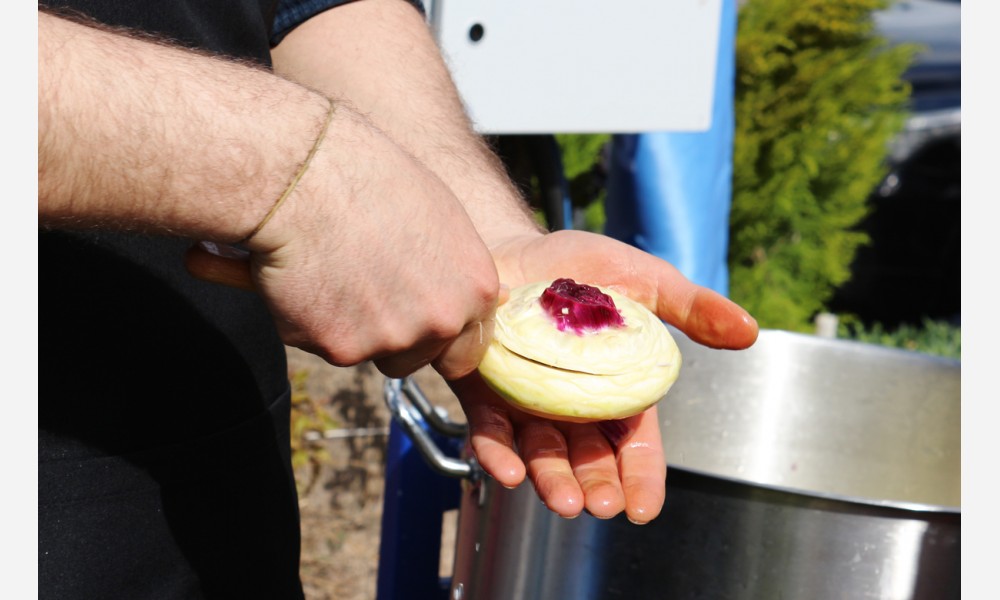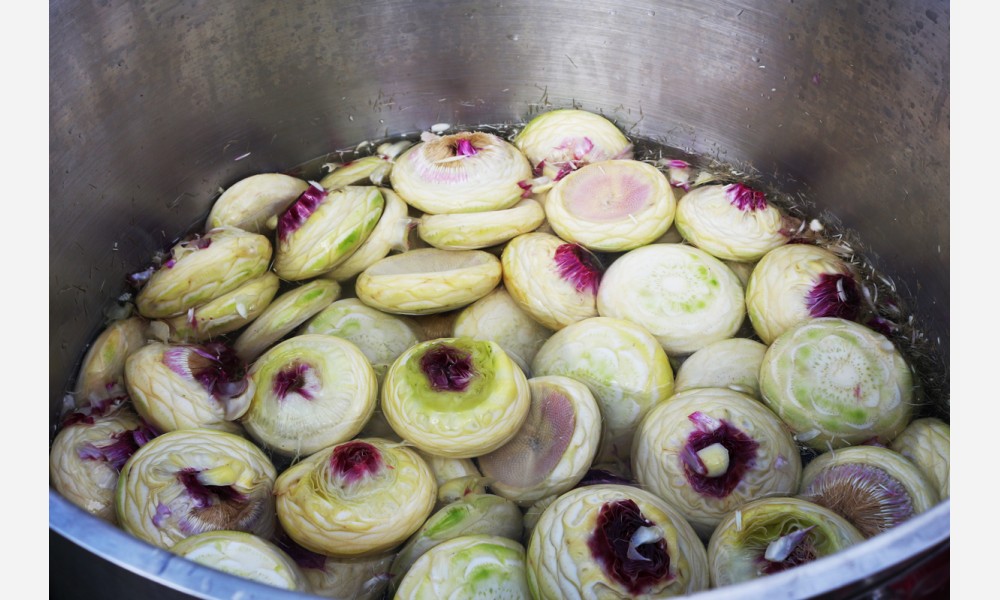What do you know about artichokes?

Artichokes showing up in markets in April hit peak flavour in May and June.
The health benefits of artichokes are almost too numerous to count. They have the ability to purify the blood and eliminate toxins from the blood.
Cynarin in artichoke helps liver, gall bladder, kidneys and intestinal system work properly and facilitates the digestion of food. It is also good for treating diarrhoea due to its disinfectant properties in the stomach and intestines.
Since it is a powerful diuretic, it regulates the functioning of the kidneys, makes it easier for the harmful liquids in the body to be thrown out and helps to drain the kidneys.
Some studies have shown that the artichoke is useful for the heart as well as the digestive system; it strengthens the heart muscles to make the heart work better, reduces cholesterol and triglycerides, and is good for fighting vascular stiffness.
We took notes of the tricks that you should pay attention to while buying artichokes:
If an artichoke's leaf tips are split, shrivelled and dry looking, or discoloured with dark brown edges, the artichoke is past its prime and will not be good to eat. The inner circle of leaves should be tight and should have thorns on the tip of the artichoke like pinpricks. The length of a good artichoke handle should not exceed 8-10 centimetres.
The sooner you consume the artichokes by cooking, after you have them peeled at the market rather than consuming them after keeping in water, you will be able to benefit more from vitamin and mineral-rich healing resources from the artichokes. In this way you will have your organism cleaned for spring.
In addition to cooking the heart of the artichoke, you can also evaluate the green leaves by boiling them in the water as a soup.
For those who want to reach fresh and organic artichokes in Bodrum, where all the generosity of nature is exhibited, we have noted the web address of the manufacturer we visited at the Bodrum Bitter Herb Festival: www.yesiltarla.com










